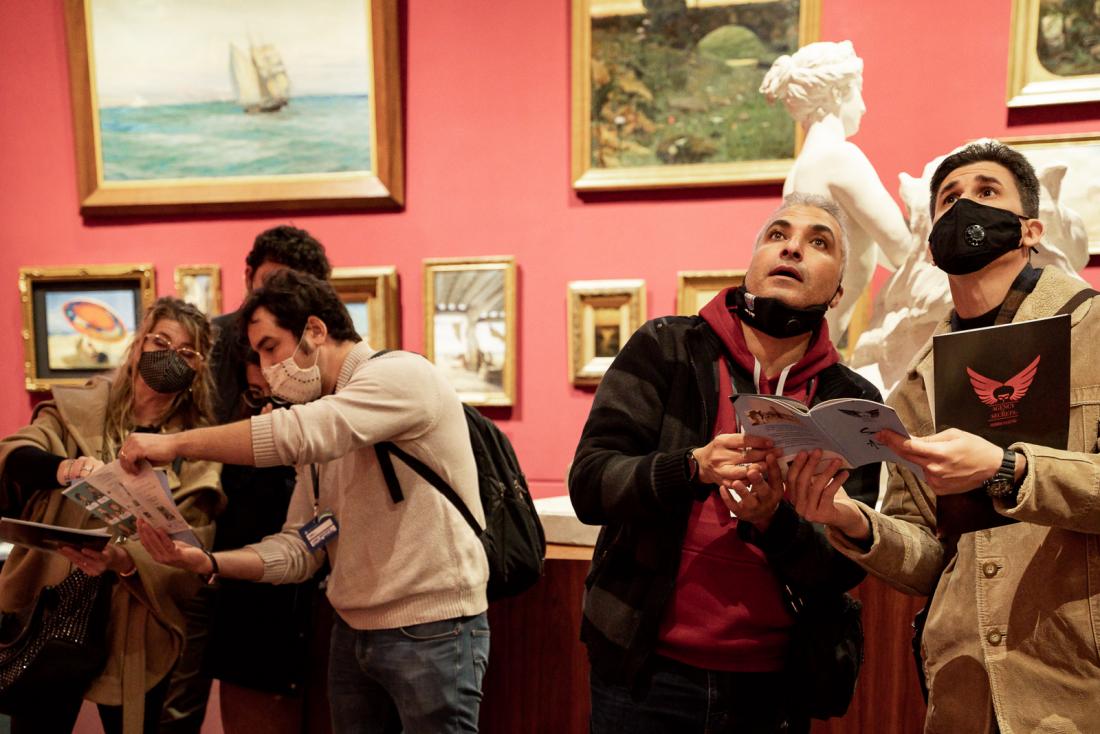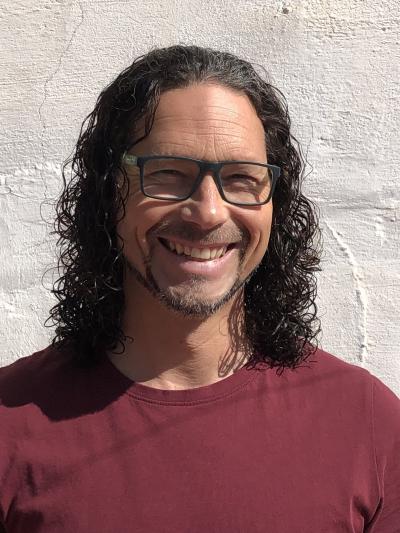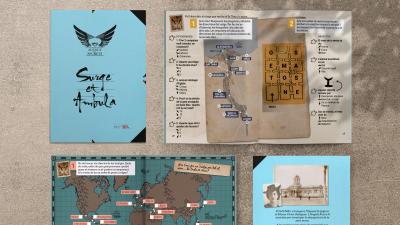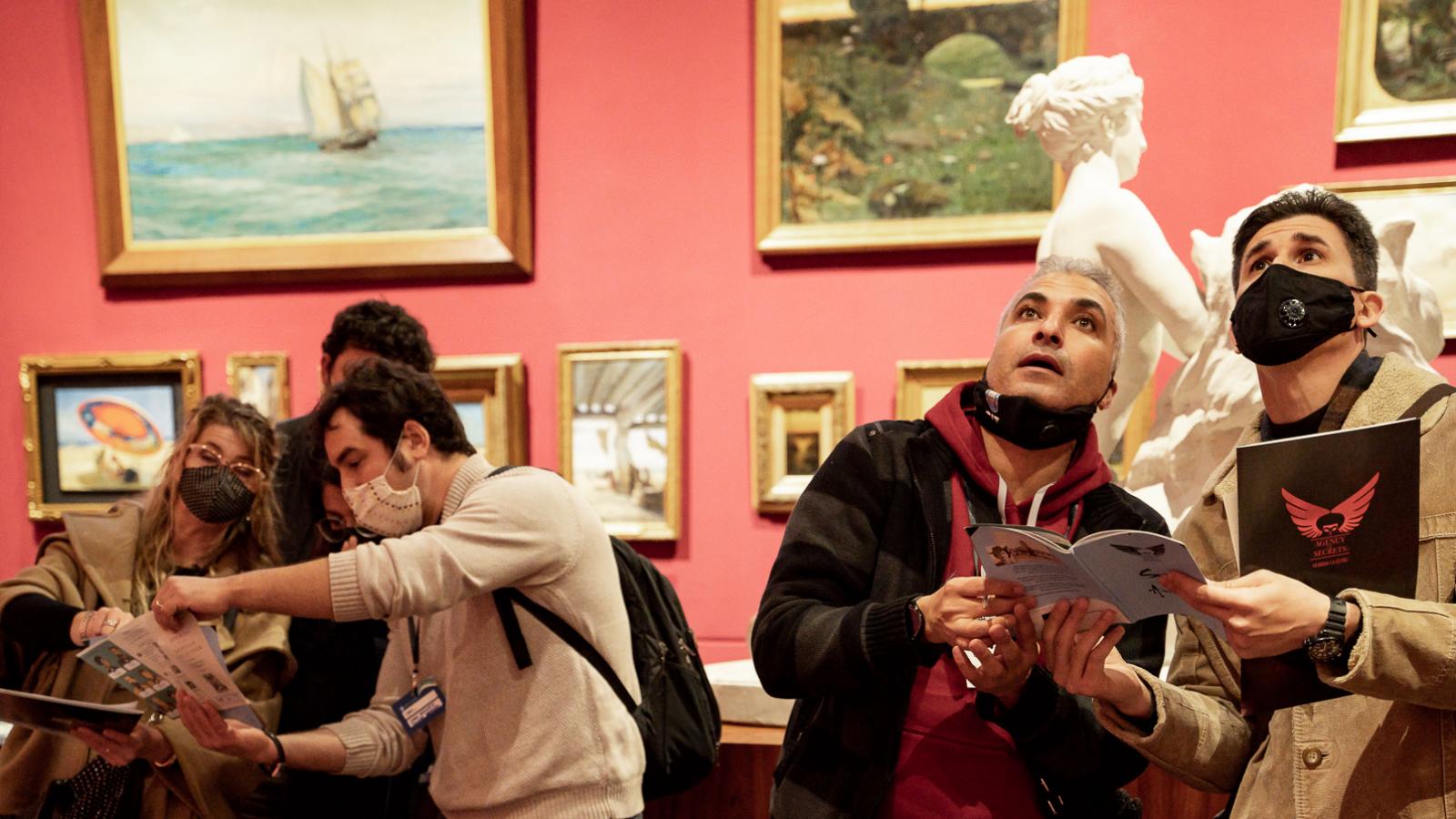MED GAIMS: how gamification can have a real impact on tourism diversification

MED GAIMS: creating games for boosting tourism off-season and in lesser-known destinations
MED GAIMS “GAmifIcation for Memorable tourist experienceS” is a project funded by the European Union under the ENI CBC Med Programme. It gathers 7 partners from four Mediterranean countries - Italy, Jordan, Lebanon and Spain coordinated by the American University of Beirut.
The main idea of the project is to promote experiential tourism to off-season travellers in view of increasing the potential of lesser-known tourist destinations while developing the local economy by creating quality jobs in the game design sector. To do this, each participating country developed 10 games (in physical and virtual format) totalling with the creation of 40 games all over the Mediterranean region. The project received a grant from the European Union worth €2.1 million.

Xavi Socías : a journey towards gamification inspired by MED GAIMS project
Xavi Socías is a smiley man who has the experience of an entrepreneur and the spirit of a boy who never stopped playing games. After graduating in tourism, he started working in this sector focusing on the organisation of events. He organised performances and interactive activities such as team building. Costumes and theatre played a central role in these events.
Workwise, things were going well for him. He arrived in September 2016 with his laptop at Neapolis, the agency of local innovation of the municipality of Villanova i la Geltrú, located about 50 km south of Barcelona, Spain. This agency offers a co-working place which was a good option for Xavi to develop his work and his network. He set up his own company and recruited up to 5 people. After developing activities for a couple of years, he felt like expanding and diversifying his offer. He started looking into gamification. This is when Neapolis offered him the opportunity to develop 10 games (analog and digital) adapted to the local context of Villanova i la Geltrú through a project called MED GAIMS.
He did not want to give up his own company, so he decided to work part time for MED GAIMS while dedicating the other part to keep running his business as well as studying a master’s degree to increase his knowledge in gamification and applying it directly in the project.
March 2020 arrived with its unpredictable pandemic that hit him as the rest of the world. All what he built during the past years was stopped and he ended up closing his business. But, as MED GAIMS was going on while he was still studying for his master’s degree in gamification, this allowed him to keep working in what he likes: he started developing games connected to the place where he lives.
Today, in May 2023, he is an employee of Neapolis and dedicates his work to designing games and promoting those he had developed in the framework of MED GAIMS.
How do these games contribute to connect with the places one visits and live new experiences?
One of the advantages of MED GAIMS is that it had foreseen different types of games: some of them are designed to play alone (i.e., wearing virtual reality glasses) or to play in group (i.e., treasure hunt), or street games to mention a few. In the case of Vilanova I la Geltrú, one of the games developed is called ‘Gastrosecret’. The gamer has to wander around the town to find the ingredients to prepare a local dish. The person may need to go to the municipal market, interact with the people to ask about the ingredients, to complete a sentence of a local proverb, etc. It is a nice way to discover traditional food of the area while talking with locals. At the end of the game, you may want to buy the ingredients to prepare the dish or taste it in one of the local restaurants.
More impact on local and national tourism
Xavi was surprised to see that these games were quite successful among locals. He didn´t expect that. The specific context and the timing in which these games were released could partly explain this local enthusiasm. We were living under COVID-19 restrictions with nearly no travel abroad and people were eager to be outdoors after the lockdown. Back then, people were fed up with the digital world and valued more physical games.
Having said that, they have developed the games (Agency of Secrets) in 3 different languages (Catalan, Spanish and English). It may have been relevant to have it in French as well knowing that 60 % of international tourists visiting this town come from France as it is quite close from the border. This booklet was free of charge during MED GAIMS project and now you will need to pay a fee to have it and be able to play.

What is the added value of such a project at Mediterranean level?
Culturally speaking, for Xavi, it was enriching to interact with such a variety of partners, each one of them with their own cultural background, references, and work pace. He learnt to adjust to the team and be more aware of certain cultural sensitivities. For example, when referring to games, from this side of the Mediterranean (west), in most of the legends, we depict the pirates as Arab people while from the other side of the Mediterranean (east), Europeans were considered as the bad guys. It helped him break some stereotypes.
On another level, working with people living in countries where crisis is part of their daily life, made him also re-think the way to apprehend certain events. He was in an online meeting with his Lebanese partner when the port of Beirut exploded on the 4th August 2020. He was amazed by the capacity of resilience of his colleagues in Lebanon.
Finally, from a professional point of view, he learnt a lot from his experienced partners, but he also learnt other skills: how to have a vision, to plan, to implement an international project.
How does MED GAIMS have a direct impact on local economic development?
According to Xavi, there are at least 3 direct impacts that prove this project benefits local economy. Firstly, out of the 10 games that were developed, 5 were foreseen to be developed by the official partner and the other 5 through grants that were awarded to entrepreneurs and SMEs through a hackathon. Out of these 5 beneficiaries: at least 3 of them got a job in the gamification sector, one of them developed his already existing SME and another one created a portfolio of his work thanks to this experience. Secondly, once these games were developed, the city council of Vilanova i la Geltrú has launched a tender to commercialize a new tourism product to promote its town as an attractive destination to spend a weekend. Thirdly, through the games, people are willing to discover and taste local products and go to the local restaurants mentioned previously.
What´s next after MED GAIMS experience?
For Xavi, there is a before and an after MED GAIMS. Not only did he gain in experience, knowledge, and visibility but he is regularly invited to represent the project, his city or Neapolis for whom he works to share his experience and vision! It really opened his mind and contributed to his personal growth. He has lots of ideas and projects to keep exploring new horizons, apply the methodologies learnt from the project, expand them to other sectors (i.e., educational one) and keep connecting with the territory.
Lessons learnt and advice to start a new Interreg NEXT MED project
The last two recommendations that Xavi would like to share with anyone interested in taking part in a Mediterranean cooperation project are the following:
When you write a proposal, the more you include partners with expertise in a specific sector, the better it is. Then, make sure you involve the most relevant stakeholders since the beginning of the project in the decision-making. If they feel part of the project, there is a higher probability that they will defend it and promote it to have a full impact locally.
ENI CBC MED would like to congratulate Xavi Socías and all MED GAIMS partners for this successful project and wish to hear more stories about how these projects positively impact the life of people across the Mediterranean region.
MED GAIMS has been awarded the first Mediterreanean digital prize for its contribution to improve competitiveness in the tourism sector through the use of digital technologies while involving several partners from the Mediterranean region. For more information about the ceremony of this prize, click here.
Discover the games developed by MED GAIMS: https://medgaims.com/
Follow Xavi Socías on Twitter: https://twitter.com/xavisocias








